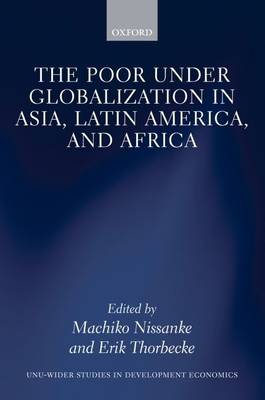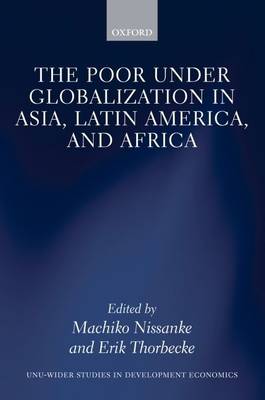
- Retrait gratuit dans votre magasin Club
- 7.000.000 titres dans notre catalogue
- Payer en toute sécurité
- Toujours un magasin près de chez vous
- Retrait gratuit dans votre magasin Club
- 7.000.0000 titres dans notre catalogue
- Payer en toute sécurité
- Toujours un magasin près de chez vous
213,95 €
+ 427 points
Description
Globalization and poverty are two of the most pressing contemporary international development issues. Despite the enormous potential of globalization to accelerate economic growth and development, through greater integration into the world economy, the spread and transfer of technology, and the transmission of knowledge, its impact on poverty reduction has been uneven and even marginal in some regions. Both the prevalence and depth of poverty in many parts of the developing world remain unacceptably high. This volume presents thirteen studies selected from the three regional conferences organized under the auspices of UNU-WIDER. They illustrate the differential effects of globalization on growth, inequality, and poverty in Asia, Latin America, and Africa. Distinct processes of institutional and socio-political change, as well as significant differences in initial conditions, such as natural resource endowment, the quantity and quality of human capital, institutional framework, and the quality of governance, have had diverse effects on the poor in these regions. Focusing on distinct manifestations of globalization and their affect on poverty, these case studies cover the spectrum from broad macroeconomic regional and country analyses to micro-oriented village studies in each of the three continents. This volume clearly illustrates that the impact of globalization on poverty is extremely context specific, reflecting the heterogeneous and complex nature of the globalization-poverty nexus.
Spécifications
Parties prenantes
- Auteur(s) :
- Editeur:
Contenu
- Nombre de pages :
- 400
- Langue:
- Anglais
- Collection :
Caractéristiques
- EAN:
- 9780199584758
- Date de parution :
- 29-07-10
- Format:
- Livre relié
- Format numérique:
- Ongenaaid / garenloos gebonden
- Dimensions :
- 234 mm x 163 mm
- Poids :
- 904 g

Les avis
Nous publions uniquement les avis qui respectent les conditions requises. Consultez nos conditions pour les avis.






